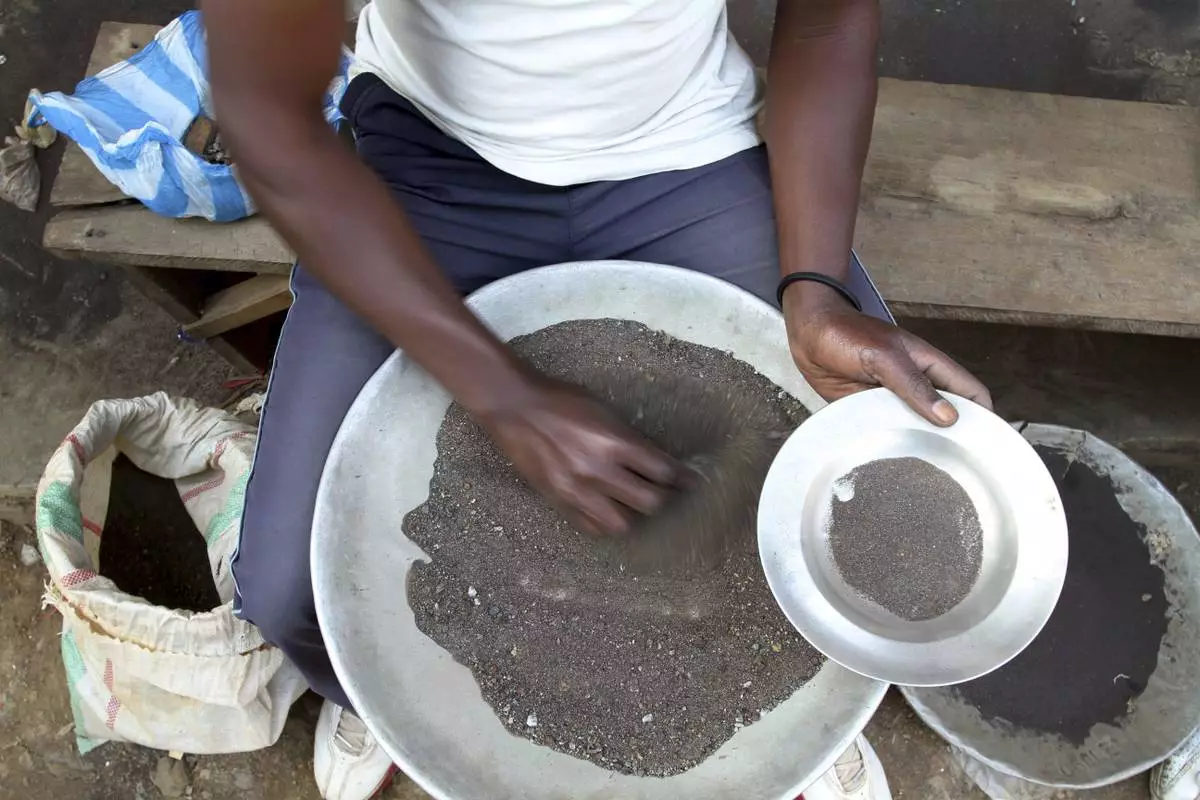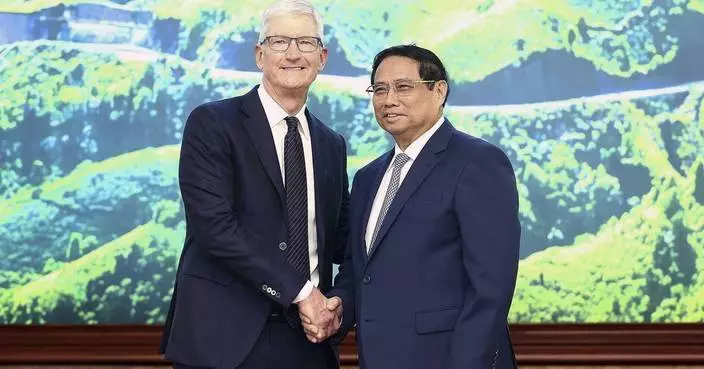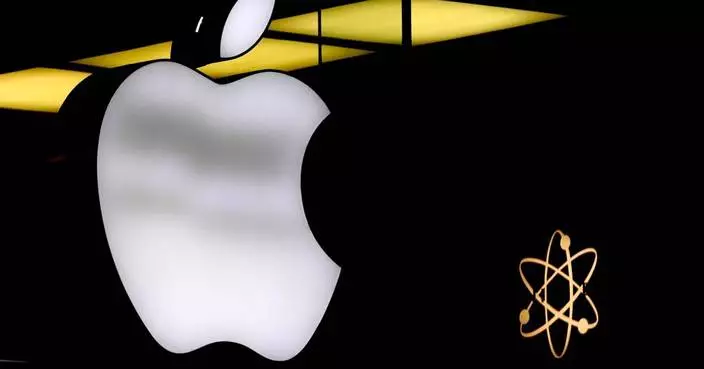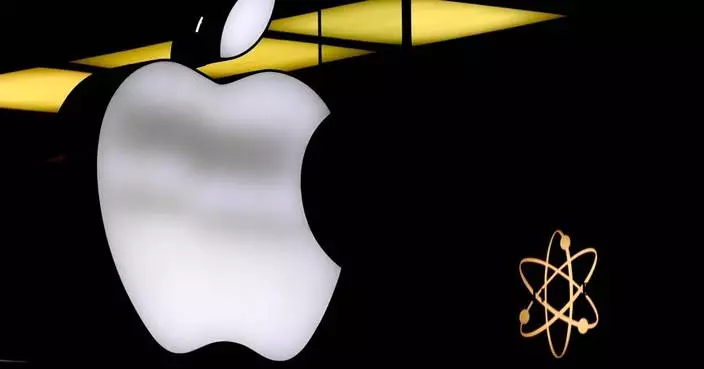Apple's iPhone may be ready for its next big act — as a springboard into "augmented reality," a technology that projects life-like images into real-world settings viewed through a screen.
If you've heard about AR at all, it's most likely because you've encountered "Pokemon Go," in which players wander around neighborhoods trying to capture monsters only they can see on their phones. AR is also making its way into education and some industrial applications, such as product assembly and warehouse inventory management.
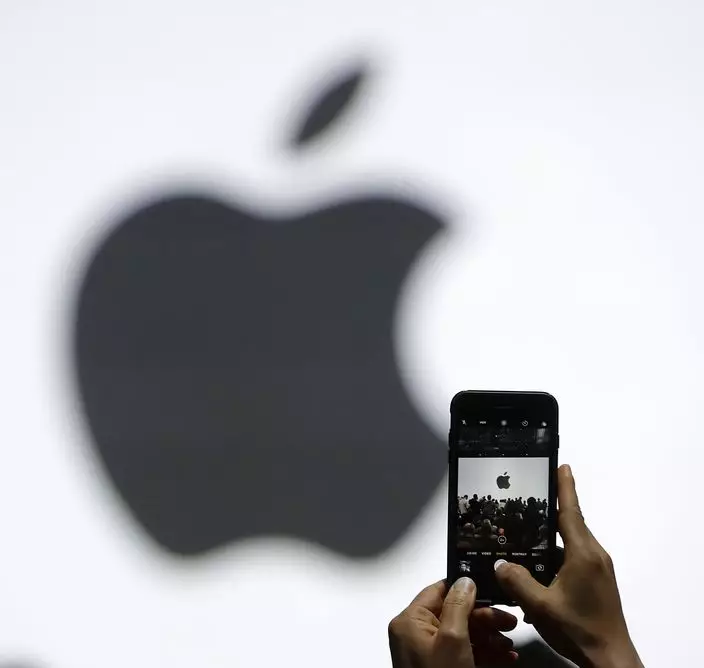
AP Photo, File
Now Apple is hoping to transform the technology from a geeky sideshow into a mass-market phenomenon. It's embedding AR-ready technology into its iPhones later this year, potentially setting the stage for a rush of new apps that blur the line between reality and digital representation in new and imaginative ways.
"This is one of those huge things that we'll look back at and marvel on the start of it," Apple CEO Tim Cook told analysts during a Tuesday conference call. Many analysts agree. "This is the most important platform that Apple has created since the app store in 2008," said Jan Dawson of Jackdaw Research.
There's just one catch: No one can yet point to a killer app for AR, at least beyond the year-old (and fading) fad of "Pokemon Go." Instead, analysts argue more generally that AR creates enormous potential for new games, home-remodeling apps that let you visualize new furnishings and decor in an existing room, education, health care and more.
For the moment, though, we're basically stuck with demos created by developers, including a "Star Wars"-like droid rolling past a dog that doesn't realize it's there; a digital replica of Houston on a table ; and a virtual tour of Vincent Van Gogh's bedroom .

John Knoll, of Industrial Light & Magic, right, speaks about virtual reality during an announcement of new products at the Apple Worldwide Developers Conference in San Jose, Calif. (AP Photo, File)
AUGMENTING THE IPHONE
At Apple, the introduction of AR gets underway in September with the release of iOS 11, the next version of the operating system that powers hundreds of millions of iPhones and iPads around the world
Tucked away in that release is an AR toolkit intended to help software developers create new AR apps.
Those apps, however, won't work on just any Apple device — only the iPhone 6S and later models, including the hotly anticipated next-generation iPhone that Apple will release this fall. The 2017 iPad and iPad Pro will run AR apps as well.
Apple isn't the only company betting big on AR. Facebook founder Mark Zuckerberg talked up the technology at a company presentation in April, calling it a "really important technology that changes how we use our phones." Apple rivals such as Google and Microsoft are also starting to deploy AR systems .
WAITING FOR APPLE'S NEXT BIG THING
Apple has been looking for something to lessen its dependence on the iPhone since the 2011 death of its co-founder CEO Steve Jobs, the driving force behind the company's innovation factory.
Cook thought he had come up with a revolutionary product when Apple began selling its smartwatch in 2015, but the Apple Watch remains a niche product.
For now, the iPhone remains Apple's dominant product, accounting for 55 percent of Apple's $45.4 billion in revenue during the three months ended in June. The total revenue represented a 7 percent increase from the same time last year. Apple earned $8.7 billion, up 12 percent from last year.
AN AR EXPLOSION ... MAYBE
Tim Merel, managing director of technology consulting firm Digi-Capital, believes Apple's entry into AR will catalyze the field. His firm expects AR to mushroom into an $83 billion market by 2021, up from $1.2 billion last year.
That estimate assumes that Apple and its rivals will expand beyond AR software to high-tech glasses and other devices, such as Microsoft's HoloLens headset.
For now, though, nothing appears better suited for interacting with AR than the smartphone. Google already makes AR software called Tango that debuted on one Lenovo smartphone last year and will be part of another high-end device from Asus this month.
But it will be years before Tango phones are as widely used as iPhones, or for that matter, iPads. Most of those devices are expected to become AR-ready when the free iOS 11 update hits next month.
Nearly 90 percent of Apple devices powered by iOS typically install the new software version when it comes out. Assuming that pattern holds true this fall, that will bring AR to about 300 million Apple devices that are already in people's hands.
BEYOND THE IPHONE
If the new software wins over more AR fans as Apple hopes, analysts figure that Apple will begin building AR-specific devices, too.
One obvious possibility might be some kind of AR glasses tethered to the iPhone, which would allow people to observe digital reality without having to look "through" a phone. Once technology allows, a standalone headset could render the iPhone unnecessary, at least for many applications.
Such a device could ultimately supplant the iPhone, although that isn't likely to happen for five to 10 years, even by the most optimistic estimates.



